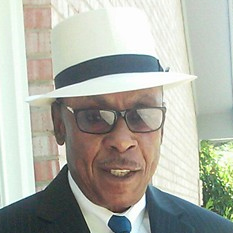Gus Townes
“A lot of these towns were drying up. They didn’t have anything in them, not even a farmers market. So our strategy was to try to revive rural towns using farmers markets…The first one I had Leroy [Biggers] put together. When we got there, that farmers market only sold roses. That’s a big rose-growing area up around Tyler. So that farmers market dealt mostly with roses. So I asked Leroy, what can we do to bring farmers’ products in here? You got farmers up there, not growing enough product to go to the wholesale, but too much for retail. It seemed to me like we could get some of these guys in; they could even sell some of the high- volume stuff after a while. But he started working on it. I guess after about six months he had about 30 farmers who said they will be willing to bring their products together. So we opened the next year, the Tyler Farmers Market. We sold more than just roses. We had, I guess, about eight or 10 different varieties of roses. It went from, ‘Can we get people to come to the farmers market?’ to just crowds of people coming into the market.”
Gus Townes was working for the Federation of Southern Coops when he was recruited to lead the direct marketing efforts at the Texas Department of Agriculture. He brought his expertise in creating farmer cooperatives, building farmers markets, diversifying crops and connecting producers with wholesale buyers for large chain grocery stores, where they could get a higher price than they could at a roadside stand. He helped organize the first large scale black farmer cooperative, the Hempstead Watermelon Growers, to sell directly to Kroger Foods.
